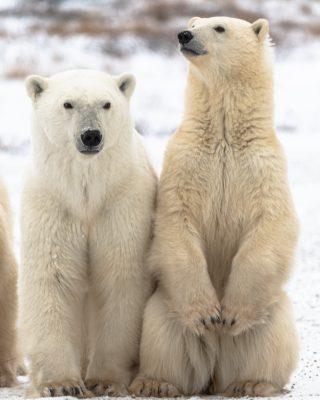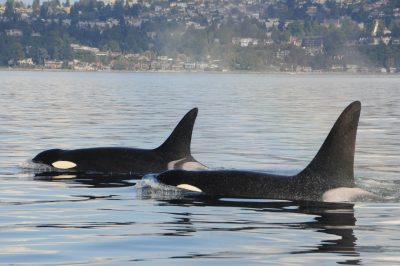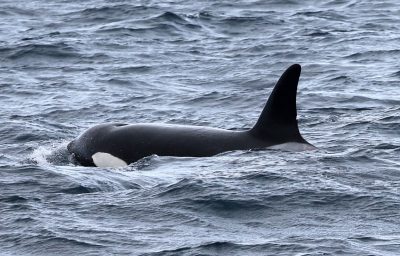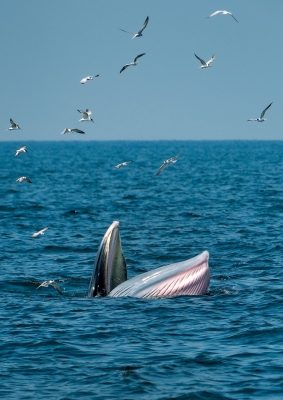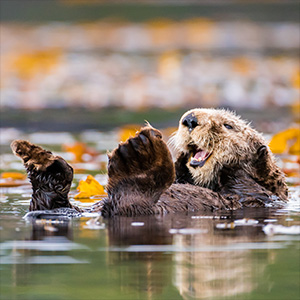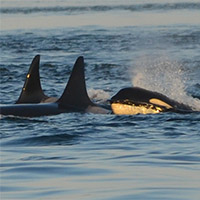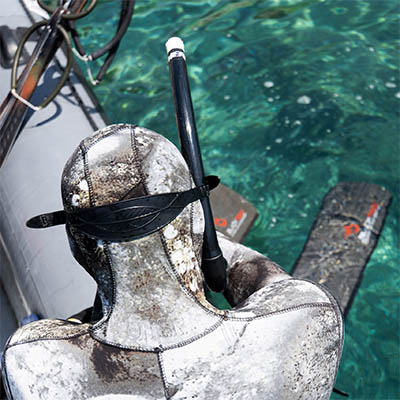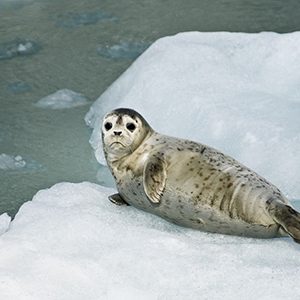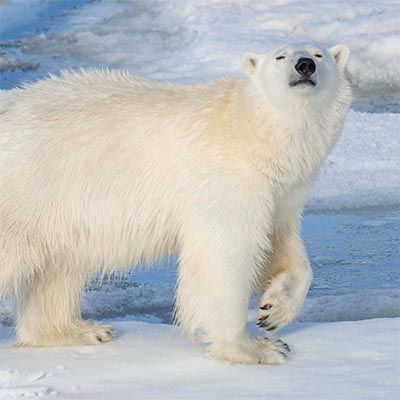Increasing temperatures and salinity result in decreased ecosystem diversity, UBC study finds.
Ecosystems can be impacted and changed by a lot of different things, including human activities, stormwater runoff, contaminants, invasive species, and climate change
IOF faculty members receive funding from Government of Canada
Dr. Marie Auger-Méthé’s Canada Research Chair in Statistical Ecology (Tier II) was renewed, and she, along with Dr. William Cheung and Dr. David Rosen received NSERC Discovery Grant funding.
What could be impacting the food source of Southern Resident killer whales?
There are currently 74 Southern Resident killer whales, and this population is listed as endangered in both Canada and the U.S. The species relies on Pacific salmon (Chinook and coho) for food, however these salmon populations have been decreasing for decades.
Shark-bitten orcas in the Northeastern Pacific could be a new population of killer whale
UBC researchers believe a group of killer whales observed hunting marine mammals including sperm whales, as well as a sea turtle, in the open ocean off California and Oregon could be a new population.
Hungry, hungry otters! Looking at captive sea otters to understand their wild counterparts
These furry marine mammals seem to have bottomless stomachs — what does that mean for the habitats and species around them?
Toxic toilet paper and long-lasting chemicals found in endangered killer whales
A chemical used in the production of toilet paper and ‘forever chemicals’ have been found in the bodies of orcas in B.C. , including the endangered southern resident killer whales.
How do marine mammals make decisions about diving?
PhD candidate Rhea Storlund decided to take an unconventional approach to understand how marine mammals dive by asking human breath-hold divers about the decisions they make.
Long-term studies quantify the prey requirements of pinnipeds, and help predict the effects of nutritional stress
Two new studies by Dr. David Rosen answer the question: “How much fish does a seal need?”
Ecologists and mental health researchers unite to improve patient care, save wild animals using Fitbit-like devices
Narwhals, sharks, and polar bears can help medical professionals improve care for patients with mental health struggles – and patients with conditions such as depression and bipolar disorder can offer insights that will help the conservation of many wild animals.
